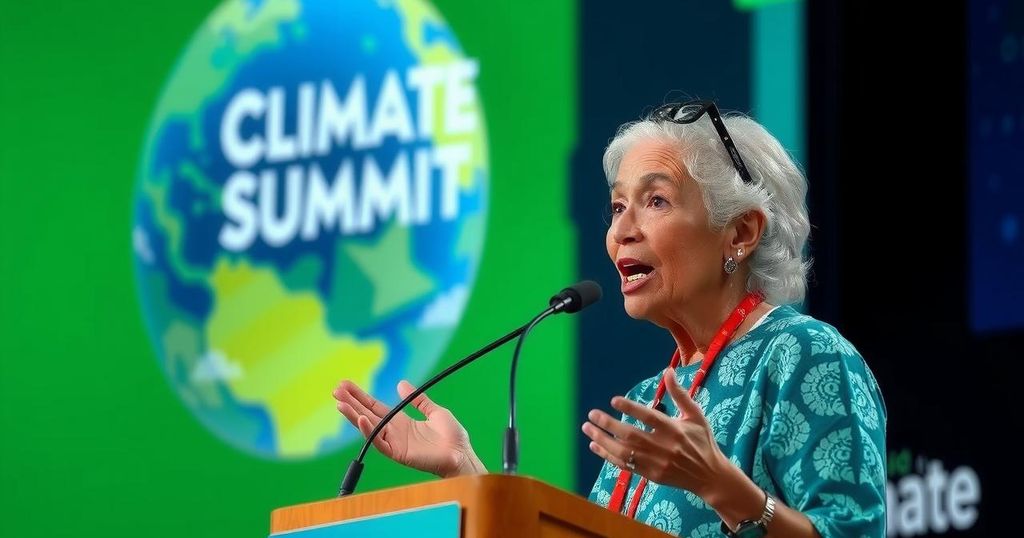During the G20 Summit in Rio de Janeiro, Brazilian President Luiz Inácio da Silva urged developed nations to advance their climate neutrality targets from 2050 to as early as 2040. He called for an acknowledgment of historical emissions and greater accountability from wealthier nations in their climate commitments, stressing that significant improvements are needed to combat the climate crisis effectively. Lula highlighted Brazil’s renewable energy achievements and the importance of collective action for sustainable development.
Brazilian President Luiz Inácio da Silva called upon developed nations within the G20 to advance their climate neutrality goals from the current target of 2050 to as early as 2040 or even 2045. This appeal was made during his address at the G20 Summit in Rio de Janeiro, where he emphasized the need for all nations, regardless of their development status, to make significant strides towards sustainability. He underscored that climate neutrality involves balancing emissions with measures such as carbon sequestration. With climate change being a priority for Brazil’s G20 presidency, Lula reiterated the concept of ‘common but differentiated responsibilities,’ urging developed countries to acknowledge their historical contributions to greenhouse gas emissions, which undermines their credibility when pressing other nations to enhance their climate ambitions. Furthermore, President Lula reflected on the failures of past global climate agreements and stressed the urgent necessity for more substantial actions. He highlighted Brazil’s proactive stance and its commitment to reducing emissions through deforestation control, noting a 45% reduction in deforestation over the last two years. Lula praised Brazil’s success in generating renewable energy and mentioned the country’s complete coverage of greenhouse gases in its Nationally Determined Contributions (NDCs). He also expressed hope for the establishment of a Climate Change Council at the United Nations to unify fragmented climate actions and initiatives.
The call for increased climate contributions from developed countries emerges amidst a growing global appreciation for the urgent need to combat climate change. As climate-related extreme weather events become more frequent, leaders are recognizing the importance of collective action to meet the pressing challenges posed by global warming. Historically, G20 nations are responsible for the majority of greenhouse gas emissions, and their commitments significantly influence global climate action. This context is crucial for understanding President Lula’s insistence on equitably scaling climate targets and his demand for richer nations to fulfill their climate responsibilities while supporting developing countries.
In summary, President Lula’s address at the G20 Summit encapsulates the urgency for developed nations to amplify their climate commitments and take responsibility for their historical emissions. As nations grapple with the ongoing climate crisis, Lula’s proposal reflects a broader call for enhanced cooperation and action within the global community. The establishment of unified frameworks, such as an international Climate Change Council, and renewed commitments to climate finance are integral to achieving meaningful progress in the fight against climate change.
Original Source: en.mercopress.com







